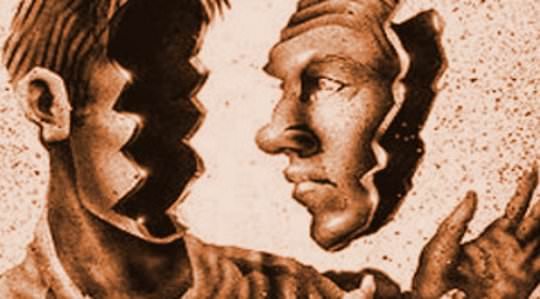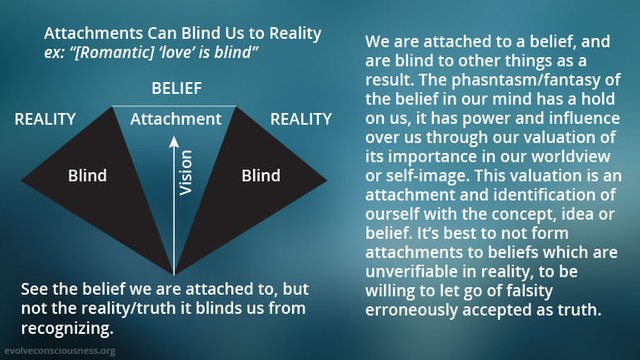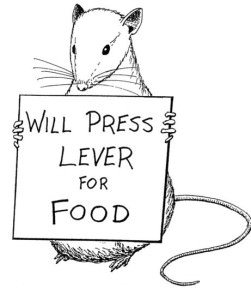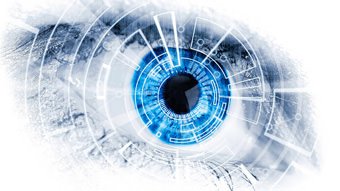Individual aspects of reality each have an identity. This is part of philosophical metaphysics and categories of being to understand characteristics, aspects, attributes, properties and qualities of what 'is' in reality. In the trivium methodology, this is the knowledge-grammar-input gathering of data.
Reality, existence and the universe has variability, diversity and multiplicity. Identity distinguishes one thing from another. A is A. A is not B. This is the Law of Identity. It includes the Law of Excluded Middle and the Law Non-Contradiction (of Logic).
Law of Identity: "Whatever is, is."
Law of Non-Contradiction: "Nothing can both be and not be."
Law of Excluded Middle: "Everything must either be or not be."
- Bertrand Russel
I-dentity

Source
We have an identity as physical beings -- body. We also have identities as metaphysical beings -- consciousness.
As an individual self, we have a body and consciousness emerges from the body (brain). Consciousness is the nonphysical, immaterial and "hidden" "unseen" "spirit" with a unique individual subjective inner-reality. Consciousness exists and comes from the body in the physical, material and visible seen matter of an objective external reality we all share in common.
Who am I? Who are you? Do you know thyself? Would you agree that you are an individual self? I am myself. You are yourself. We are each ourselves (a self), and not others. We are each individuals.
A "self", an "identity", an "I", is also represented by the term "ego". Our ego, "I"-ness, our identity and personality, is shaped and conditioned throughout our life, from birth to death.
Conditioning
We are conditioned by environmental conditions, influences and impositions that affect and condition us. The environmental conditioning involves everything we see, hear, touch, taste and smell. This includes parents, family, society, media and everything else that in received as input to our senses.
All of the influences in our lives automatically affect us to some degree at a subconscious and unconscious level, regardless of the consciouses awareness we have of their influence or the willingness to accept something influencing us. They participate in shaping our sense of self, self-image and self-view, and also our worldview or perception of the world. Much of our identity is adopted in an automatic, involuntary, unwilling, unaware, subconscious, unconscious and unthinking way.
We can accept contradictory information. We can engage in double-think, to hold two contradictory views and represent them each when it suits our justifications about how we view ourselves or the world. We can also be conscious, willful, voluntary, aware and critical of the information input we process that we receive through our senses. We can verify, discern, judge, discriminate, evaluate and diagnose information. This is what logic is used for.
In this way, we are copycats, shape-shifters and chameleons that mimic the conditions around us, be they true or false, right or wrong, logical or contradictory, etc. We can even recondition, reprogram and change ourselves, if we choose to. Or we can remain conditioned and programmed as copies, formed by the conditions and dictates of society.
Identification and Attachment
We identify with the influences in our lives. We identify with parents, friends, media personalities and even ideas and beliefs. We associate, connect to, and form valuations of these influences. They shape, construct and form our identity. We become attached to these influences. The more power and influence these environmental conditions have on our consciousness and our way of life, the more we become attached to them.
I refer to this shaping, conditioning and construction of our sense of self, self-view and self-image, as our ego-personality-identity construct.
A self-view can't really be separated from a worldview, as the worldview encompasses ourselves within it and how we view the world affects how we view ourselves within it. We become attached to the influences from our environment, society and the world, because they become identified and associated with aspects of what we have taken into our sense of self.
Our identity is part of who we are. What we do is also part of who we are. We become attached to what we do as part of who we are, as part of our ego-personality-identity construct. When we become attached to things, we value them more, and we identify with them more. This connection, identification, valuation and attachment of what do and what we identify with, prevents us from being able to honestly assess, evaluate, discern and judge reality that contradicts our conditioned attachments.
Attachments often blind us to reality.

Made by @krnel
There are complex and intricate levels of truth to Buddha's assessment that attachment is the root of suffering. It applies on many levels of life because attachment is intricately rooted into our ego-personality-identity construct, our sense of self, self-image, self-view and worldview. We have a lot of ego-personality-identity attachments that prevent us from honestly looking into reality.
If we are doing something wrong, it's part of who we are at that time. We don't want to see ourselves as being wrong by doing wrong things. We want to fight to hold onto our attachment of who we are. We feel secure and comfortable holding onto our self-view, self-image and worldview.
We don't want to lose part of who we are, as that would make us less than who we are now (fractured, broken, disintegrated), and we fear that subconsciously/unconsciously. When part of who we are is threatened, we defend ourselves in negative-ego manifestations to ignore, deny, dismiss, reject or refuse to accept the truth about what we are doing and who we currently are. Admitting wrong can be hard to do, especially when it's personal or ingrained into our daily lives.
Know thyself, asking "who am I"/"who are you" is important to understand how we have been socially engineered, conditioned and programmed to be who we currently are. We are unthinkingly adopting the beliefs and ways of life of our society, parents, friends, media, politicians, etc. This can change if we develop an understanding of psychology and how we can be conditioned, influenced and manipulated.
Thank you for your time and attention. Peace.
Recent posts you might also be interested in:
- Philosophical Metaphysics
- Thought, Logic, Logos and the Word
- Wanting to be Fooled
- Imagine Better
- Word 'Magic': The Art of Manipulation and Mind Control
- Admitting Wrong
- Free Will Choice and Causality - DTube
- The Current Condition Conditions Us
- Philosophical Foundations: Axioms of Truth, Existence and Consciousness
If you appreciate and value the content, please consider: Upvoting, Sharing or Reblogging below.
 me for more content to come!
me for more content to come!
My goal is to share knowledge, truth and moral understanding in order to help change the world for the better. If you appreciate and value what I do, please consider supporting me as a Steem Witness by voting for me at the bottom of the Witness page.



Beautiful metaphysical philosophy of what it reveals to us to many aspects of our personalities
Downvoting a post can decrease pending rewards and make it less visible. Common reasons:
Submit
Thanks, glad you appreciated the content ;)
Downvoting a post can decrease pending rewards and make it less visible. Common reasons:
Submit
Consciousness IMHO does not 'come from the body'-perhaps I am misinterpreting what you wrote but that seems like a somewhat absolute assertion that first comes the body which is a prerequisite for consciousness or the soul?
Downvoting a post can decrease pending rewards and make it less visible. Common reasons:
Submit
The human brain creates human consciousness. There is no human consciousness without a brain. Show me a consciousness that emerges without a body that produces is? Other animals have different organizational components of their brain which produces their level of consciousness as a result.
Downvoting a post can decrease pending rewards and make it less visible. Common reasons:
Submit
The body here in this 3-d realm is merely a very temporary host to our souls while incarnated here on Earth- I'll show you that consciousness once your soul evacuates it's 3-d body - other animals have souls, spiritually evolve, and in carnate in orderto experience the creation we all create(d)
Downvoting a post can decrease pending rewards and make it less visible. Common reasons:
Submit
And I would say: right but as long as money exists, attachment to things, power and wealth will continue to exist.
Downvoting a post can decrease pending rewards and make it less visible. Common reasons:
Submit
Money isn't a problem. Money is useful as a medium of exchange. The lust, love and desire for money above things like morality is the problem. The root problem is consciousness, not the tool.
Downvoting a post can decrease pending rewards and make it less visible. Common reasons:
Submit
I think this is the main thing about our identity Know thyself, asking "who am I"/"who are you" is important to understand how we have been socially engineered, conditioned and programmed to be who we currently are.But changing is really needed always?Even if you are doing everything good.Changing only needed when you are not being able to go with the society.People never wants to loose his identity.Whenever situation like this comes human try to defend himself.
Downvoting a post can decrease pending rewards and make it less visible. Common reasons:
Submit
Hello!
Very interesting post ..
Good
Downvoting a post can decrease pending rewards and make it less visible. Common reasons:
Submit
Curated for #informationwar (by @wakeupnd)
Relevance: Sharing the truth.
Downvoting a post can decrease pending rewards and make it less visible. Common reasons:
Submit
its a great information for all of us....
Downvoting a post can decrease pending rewards and make it less visible. Common reasons:
Submit